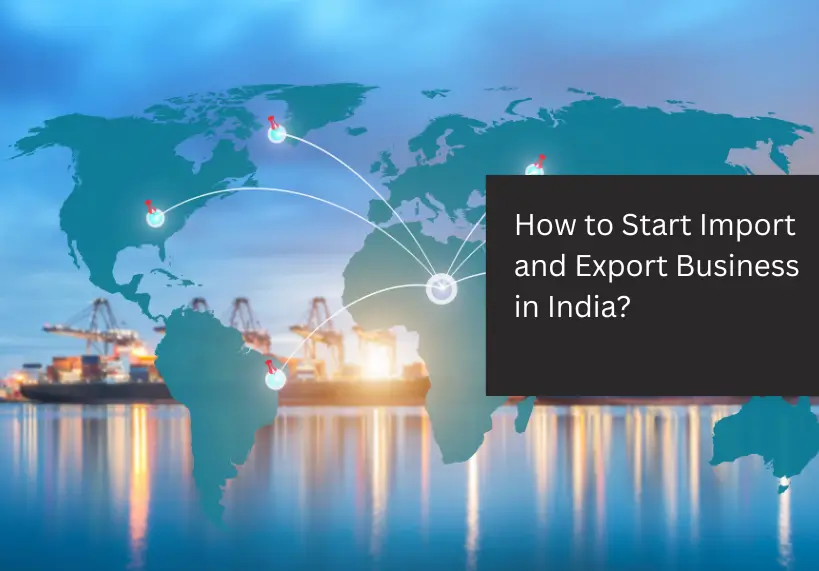
Today, business isn’t just limited to India, you can sell and buy products all over the world. Indian goods like spices, textiles, medicines, and IT services are popular globally, while we also bring in items like electronics, machinery, and crude oil. This makes the import export business a great way to grow and earn.
Starting out might feel a bit confusing. You may wonder about licenses, finding buyers, or handling shipments. The good news is, once you understand how it works, it’s much easier than it seems.
In this blog, we’ll explain what an import export business is, the types you can start, the steps to follow, necessary documents, and loan options to help you get going confidently.
What is Import Export Business?
The import export business is simply about buying and selling goods across countries. When you import, you bring products into India from abroad. When you export, you send Indian goods or services to other countries.
Think of it as a bridge that connects you to global buyers and sellers. By starting this business, you can tap into international markets, earn in foreign currency, and expand beyond local customers.
Different Types of Import Export Businesses
There are several ways to run an import and export business, each with its own approach to trade, profits, and risks. Some act as middlemen, others manage the full export process, and some let you sell directly without holding inventory. Here’s a quick guide to the most common types.
Export Trading Company (ETC) – Acts as a middleman between local manufacturers and international buyers, handling marketing and logistics so you can focus on growth.
Export Management Company (EMC): Manages the export process for manufacturers, including shipping, documentation, and compliance, helping you run operations smoothly.
Import-Export Merchant: Buys goods from one country and sells them in another under your own name, offering higher profits along with some risk.
Dropshipping / Online Import-Export: Lets you sell internationally without holding inventory; products ship directly from supplier to buyer.
Franchise or Licensing Import-Export: Provides the opportunity to distribute or sell products abroad using an established brand.
Countertrade / Barter Deals: Involves exchanging goods or services directly when currency exchange is difficult.
Steps to Start an Import Export Business in India
Here are 6 key steps that form a simple roadmap for you to kickstart an import export business
1. Decide What to Import or Export
Your first step is to choose the right product. Look for items that have high demand in international markets or goods that India needs from abroad. Think about the quality, pricing, and uniqueness before you finalize.
2. Register Your Business
Next, you need to set up a legal business entity like a proprietorship, partnership, or private limited company. This will give you credibility and allow you to apply for the necessary licenses.
3. Get the Import Export Code (IEC)
You cannot trade internationally without an Import Export Code (IEC). This is a mandatory license issued by the DGFT (Directorate General of Foreign Trade), so make sure you apply for it early.
4. Set Up Bank and Logistics Support
You’ll need a current account with a bank authorized for foreign exchange transactions. At the same time, you should connect with reliable freight forwarders and customs agents to handle your shipping smoothly.
5. Find Buyers and Suppliers
You can research international markets, attend trade fairs, or use platforms like Alibaba, Indiamart, and government export promotion councils to find genuine buyers and suppliers for your products.
6. Start Trading and Manage Compliance
Finally, once everything is ready, you can begin your first shipment. Remember to stay updated with export-import regulations, GST, customs duties, and paperwork so your business runs smoothly.
Documents You Need to Start Your Import Export Business
Before you start trading internationally, you’ll need a few key documents. Here’s a simple list to get you ready
- Import Export Code (IEC)
- Business Registration Documents
- PAN Card
- GST Registration
- Bank Account for Foreign Transactions
- Other Certificates (Product-Specific)
Loan Options available for Import Export Business
Here are some loan options that can help you:
MSME Term Loans: Provide capital for your expansion or bulk purchases.
Working Capital Loans: Help you cover day-to-day expenses and smooth cash flow.
Invoice Financing: Unlocks money tied up in your unpaid invoices.
AfterPay / Merchant Credit Lines: Support your seasonal or supplier payments.
Conclusion
Starting an import-export business in India can be highly rewarding if approached strategically. By choosing the right products, completing necessary registrations, and understanding different business models, you can confidently enter global markets.
Managing cash flow, inventory, and shipments is easier with the right financial support. LoanTap provides flexible business loans designed for import-export entrepreneurs, helping you grow your business, seize opportunities, and expand successfully without financial hurdles.
Frequently Asked Questions
1. What do I need to start an import-export business?
You need a registered business (proprietorship, partnership, or private limited), an Import Export Code (IEC), and a bank account authorized for foreign exchange.
2. How much capital is required?
The amount depends on your product and scale. You can start small and expand gradually. Loans like MSME Term Loans or Working Capital Loans can help you fund operations.
3. Can I run an import-export business from home?
Yes, especially for dropshipping or online export models. Ensure you have the proper licenses and logistics arrangements in place.
4. Which products are in demand for export from India?
Spices, textiles, garments, pharmaceuticals, handicrafts, and IT services are highly sought after internationally.








